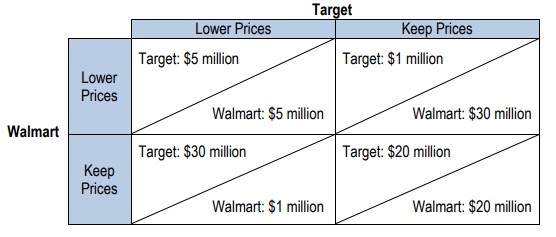In an oligopoly, firms must make strategic pricing decisions due to the limited number of competitors in the market. This interdependence among firms leads to the application of game theory, which examines how the outcomes of decisions are influenced by the actions of others. A key concept in game theory is the one-time game, exemplified by the famous Prisoner's Dilemma.
The Prisoner's Dilemma involves two individuals, Bad Boy Benny and Evil Eddie, who are arrested but lack sufficient evidence against them. They are separated and cannot communicate, leading to a critical decision-making scenario. Each prisoner faces the same offer from the police: if one confesses while the other remains silent, the confessor goes free, and the silent partner receives a 20-year sentence. If both confess, they each receive an 8-year sentence. However, if both remain silent, they each serve only 1 year for lesser charges.
This situation can be represented using a payoff matrix, which organizes the potential outcomes based on the decisions made by each prisoner. The matrix includes the following scenarios:
- If both prisoners remain silent, they each serve 1 year.
- If one confesses and the other does not, the confessor goes free (0 years), while the silent partner receives 20 years.
- If both confess, they each serve 8 years.
To analyze the best decision for each prisoner, they must consider the potential actions of the other. The dilemma illustrates the conflict between individual rationality and collective benefit, as both prisoners would be better off if they both chose to remain silent, yet the fear of betrayal often leads to a suboptimal outcome where both confess.
Understanding the dynamics of the Prisoner's Dilemma provides insight into strategic decision-making in competitive environments, highlighting the importance of trust and cooperation in achieving the best possible outcomes.



